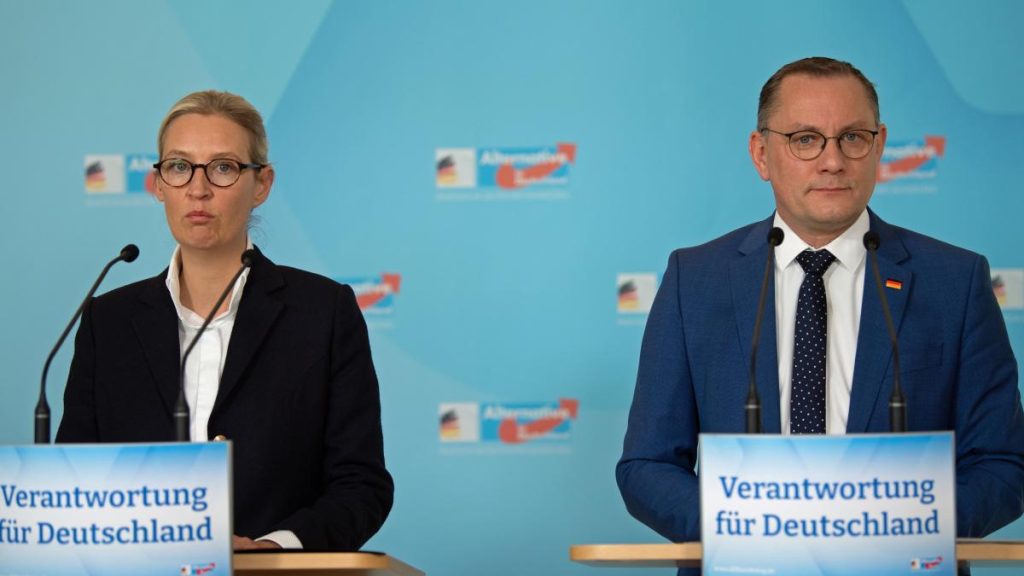The Alternative for Germany (AfD) party is continuing to lose favor with voters. According to an INSA poll commissioned by “Bild,” if federal elections were held on Sunday, the party would receive 18 percent of the vote – a decrease of one percentage point from the previous week. Since the beginning of the year, the party has lost five percentage points. The Union remains the strongest party with 30 percent (down one percentage point). The Social Democratic Party (SPD) has gained one percentage point, bringing them closer to the AfD with 16 percent. The other major parties remain unchanged from the previous week, with the Greens at 13 percent and the Free Democratic Party (FDP) at five percent. The Sahra Wagenknecht Alliance (BSW) would secure six percent of the vote and a seat in the Bundestag. The Left Party (Die Linke) and the Free Voters (Freien Wähler) would fall short of the five percent threshold, with three and two percent respectively. Other parties collectively receive seven percent of the vote.
A televised duel between the Thuringian lead candidates of the CDU and AfD, Mario Voigt and Björn Höcke, took place on Thursday on the WELT channel. Thuringia’s state elections are scheduled for September 1, with the European elections in June. The next federal elections are expected to be held in late summer or autumn 2025. INSA conducted the “Bild” commissioned poll for the so-called Sunday question from April 8 to 12, 2024, surveying 1203 eligible voters. The statistical margin of error was reported to be plus/minus 2.9 percentage points.
The declining popularity of the AfD is evident in the latest poll results, which show a continuous decrease in support for the party in comparison to earlier in the year. Despite maintaining the highest percentage of votes, the Union has also experienced a slight decrease. On the other hand, the SPD has gained in popularity, moving closer to the AfD in terms of voter support. The remaining parties, such as the Greens and the FDP, have not seen significant changes in their support levels. The potential formation of a new party alliance, the Sahra Wagenknecht Alliance (BSW), has shown promise by securing enough support to enter the Bundestag, while other smaller parties continue to struggle to meet the five percent threshold.
The duel between the CDU and AfD lead candidates in Thuringia highlights the upcoming state elections in September and the political landscape in Germany leading up to the 2025 federal elections. The European elections in June also play a significant role in shaping voter opinions and party standings. The polling data gathered by INSA provides valuable insights into the evolving preferences of German voters and the shifting dynamics within the political arena. As the campaign season progresses, it will be interesting to see how the various parties strategize to attract and retain voter support in the face of changing public sentiment.
Overall, the latest poll results point to a turbulent period for the AfD as they continue to lose ground in the eyes of voters. With the Union maintaining its position as the strongest party and the SPD gaining traction, the political landscape in Germany is evolving as the country approaches key elections. The emergence of new party alliances like the BSW adds an element of unpredictability to the future political landscape, indicating that the 2025 federal elections could bring significant changes to the composition of the Bundestag. As parties gear up for the upcoming elections, it will be crucial for them to address the concerns and priorities of voters in order to secure their support and shape the future direction of German politics.


